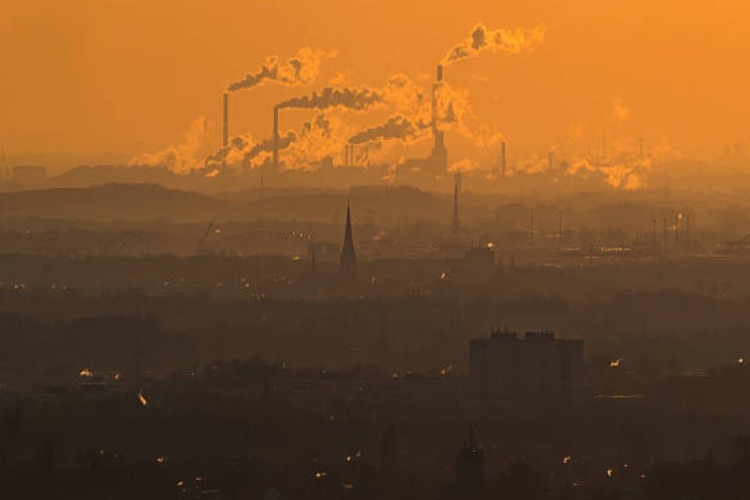
As the deadline for nations to submit their updated climate action plans looms, a disturbing reality is emerging: the vast majority of countries are likely to miss it. This delay comes at a time when the climate crisis is more urgent than ever. Temperatures have already surpassed the critical 1.5°C global warming threshold, climate-related disasters are wreaking havoc across the globe, and political uncertainties are threatening international cooperation. Despite this, the United Nations appears relatively relaxed, urging nations to focus on the quality rather than the timeliness of their commitments. However, this could have dire consequences, particularly for the most vulnerable nations.
Under the 2015 Paris Climate Agreement, countries are required to submit their nationally determined contributions (NDCs) every five years, detailing their strategies for reducing greenhouse gas emissions. The latest deadline, set for February 2025, is being widely ignored. As of now, only a handful of nations, including Brazil, the United Kingdom, and the United Arab Emirates, have met this requirement. Many of the world’s largest emitters, including China, India, the United States, and the European Union, have yet to file their plans.
READ | States vs Centre: Tax devolution dilemma continues
Cost of climate inaction
The delay is not merely an administrative oversight; it reflects deeper geopolitical and economic tensions. The return of Donald Trump to the US presidency, for instance, has created uncertainty over American climate commitments. His administration’s rollback of environmental regulations and trade conflicts with China could discourage other major polluters from taking ambitious steps. As Paul Bledsoe, a former White House climate adviser, warns, Trump’s return could embolden laggards like Russia and Saudi Arabia to weaken their climate commitments further.
Climate inaction carries a staggering human and economic toll. India, for instance, experienced 255 days of extreme weather in 2024, resulting in over 3,200 deaths, the destruction of 235,000 homes, and the loss of 3.2 million hectares of crops. The economic losses amounted to at least $4.2 billion. Similar patterns are emerging worldwide, with extreme heatwaves, floods, and wildfires devastating communities and economies.
Scientific projections indicate that failure to act decisively will push global temperatures beyond the 2.6°C to 2.8°C range by the end of the century, far exceeding the 1.5°C target. The consequences of such warming would be catastrophic: rising sea levels, widespread food and water shortages, mass displacement, and an escalation of climate-related conflicts.
Beyond economic costs, the credibility of global climate agreements is at stake. The inability of the world’s biggest economies to meet their commitments undermines trust in international cooperation. Developing nations, which are already suffering disproportionately from climate change, are calling for stronger action from the G20, which is responsible for 80% of global emissions.
Corruption mars fight against climate change
Adding another layer of complexity, corruption is emerging as a major obstacle to effective climate action. Transparency International’s latest report reveals that many countries, including those hosting recent UN climate summits, are experiencing growing levels of corruption that are obstructing ambitious policy implementation. Brazil, the host of COP30, has hit its lowest-ever score on the Corruption Perceptions Index, signalling that governance failures could hinder meaningful climate progress.
Wealthy nations, which are expected to lead on climate action, are also faltering. Canada, the United States, and several European nations have seen their governance scores decline, raising concerns about whether climate funds are being effectively allocated. Without transparent governance, even the best-laid climate plans risk being derailed by inefficiency and mismanagement.
Roadmap for urgent climate action
While global climate governance faces significant hurdles, meaningful action is still possible. Strengthening legal frameworks is crucial, as many nations lack legally binding climate policies, making enforcement difficult. Implementing clear legal mandates for emissions reductions and renewable energy expansion would help ensure accountability.
Enhancing climate finance is another vital step. Many developing countries struggle to access climate finance due to bureaucratic hurdles and insufficient international support. The Green Climate Fund and other mechanisms must be streamlined to ensure faster and more equitable distribution of funds.
Localised climate action must also be prioritised. National policies should be integrated with local adaptation strategies, yet many state and municipal governments lack the capacity to implement climate initiatives effectively. Strengthening local governance and ensuring that funds reach the most affected communities is critical.
Expanding methane reduction efforts offers another opportunity. Methane, a potent greenhouse gas, is often overlooked in national climate strategies. Cutting methane emissions from agriculture and fossil fuel extraction could provide a quick and effective way to slow global warming.
Holding major polluters accountable is essential. The G20 must face greater pressure to lead by example. Their emissions reductions should be deep, rapid, and sustained. Countries like China and India must transition from intensity-based targets to absolute reductions.
The next few months will determine whether the world can still salvage the 1.5°C target. While delays in submitting climate action plans may seem bureaucratic, they reflect a dangerous trend of political hesitancy and misplaced priorities. The cost of inaction is already being felt in lives lost, economic devastation, and escalating climate-related disasters.
As the world heads into COP30, nations must move beyond rhetoric and act decisively. The climate crisis is not waiting, and neither should we.
